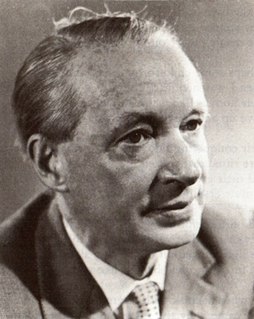A Quote by George Orwell
The process [of mass-media deception] has to be conscious, or it would not be carried out with sufficient precision, but it also has to be unconscious, or it would bring with it a feeling of falsity and hence of guilt.... To tell deliberate lies while genuinely believing in them, to forget any fact that has become inconvenient, and then, when it becomes necessary again, to draw it back from oblivion for just so long as it is needed, to deny the existence of objective reality and all the while to take account of the reality which one denies all this is indispensably necessary.
Quote Topics
Account
Again
Also
Any
Back
Become
Becomes
Believing
Bring
Carried
Conscious
Deception
Deliberate
Deny
Draw
Existence
Fact
Falsity
Feeling
Forget
Genuinely
Guilt
Hence
Inconvenient
Just
Lies
Long
Mass
Media
Necessary
Needed
Objective
Objective Reality
Oblivion
Out
Precision
Process
Reality
Sufficient
Take
Tell
Them
Then
Unconscious
Which
While
Would
Related Quotes
Lies 1: There is only the present and nothing to remember. Lies 2: Time is a straight line. Lies 3: The difference between the past and the futures is that one has happened while the other has not. Lies 4: We can only be in one place at a time. Lies 5: Any proposition that contains the word 'finite' (the world, the universe, experience, ourselves...) Lies 6: Reality as something which can be agreed upon. Lies 7: Reality is truth.
A real naturalistic approach, I would claim, should take the reality of mental representation as a natural fact. A lot can be said about this fact, but there is no need to say it all in terms of necessary and/or sufficient conditions which are stated in non-intentional terms. The idea that naturalism might require that all the truths should be stated in a particular kind of vocabulary now strikes me as a very peculiar one.
A worldview is not the same things a formal philosophy, otherwise it would only be for philosophers. Even ordinary people have a set of convictions about how reality functions and how they should live. Some convictions are conscious while others are unconscious but together they form a consistent picture of reality.
I don't think it's necessarily 100-percent true. But comic books have infiltrated the mainstream Hollywood in ways that I don't think I ever would have seen or thought imaginable a while ago. But it's also cyclical. You saw it in the '80s when it became kind of huge again. And then it disappears for a while, then it comes back again, then it disappears for a while. So yeah, there's something about that.
But while I'd be their daughter, while I'd eat the roast and come home from dates and wash the dishes, I would also be myself. I would love my mother, but I'd never want to be her again. I would never be what someone else wanted me to be. I would never laugh at a joke I didn't think was funny. I would never tell another lie. I would be the truth-teller, starting today. That would be tough. But I was tougher.
To know and not to know, to be conscious of complete truthfulness while telling carefully constructed lies, to hold simultaneously two opinions which cancelled out, knowing them to be contradictory and believing in both of them, to use logic against logic, to repudiate morality while laying claim to it, to believe that democracy was impossible and that the Party was the guardian of democracy.






































